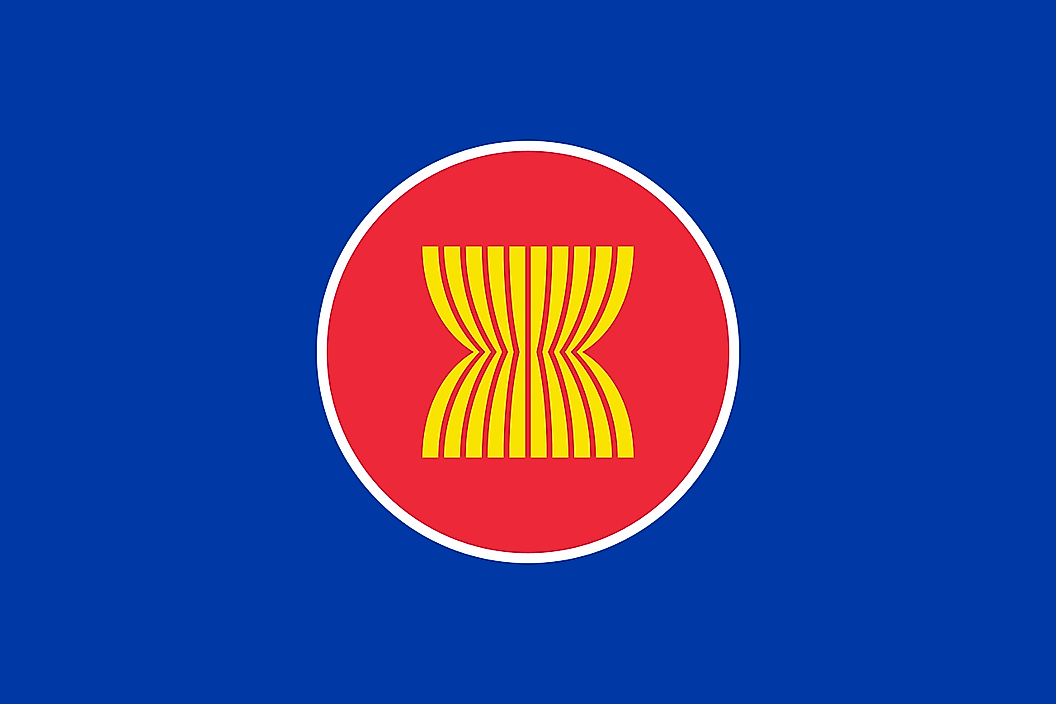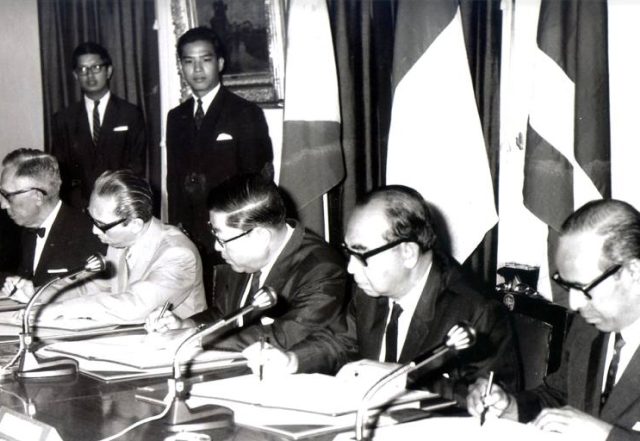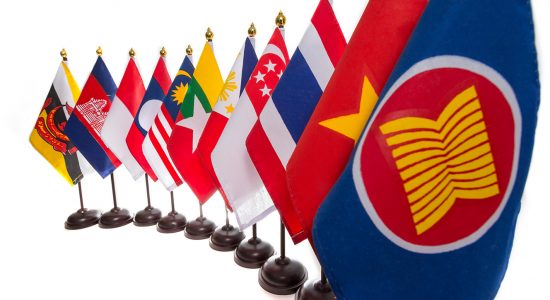About ASEAN
The Association of Southeast Asian Nations, or ASEAN, was established on 8 August 1967 in Bangkok, Thailand, with the signing of the ASEAN Declaration (Bangkok Declaration) by the Founding Fathers of ASEAN: Indonesia, Malaysia, Philippines, Singapore and Thailand. Brunei Darussalam joined ASEAN on 7 January 1984, followed by Viet Nam on 28 July 1995, Lao PDR and Myanmar on 23 July 1997, and Cambodia on 30 April 1999, making up what is today the ten Member States of ASEAN.

The ASEAN Journey
On 8 August 1967, five leaders – the Foreign Ministers of Indonesia, Malaysia, the Philippines, Singapore and Thailand – sat down together in the main hall of the Department of Foreign Affairs building in Bangkok, Thailand and signed a document. By virtue of that document, the Association of Southeast Asian Nations (ASEAN) was born.
The five Foreign Ministers who signed it – Adam Malik of Indonesia, Narciso R. Ramos of the Philippines, Tun Abdul Razak of Malaysia, S. Rajaratnam of Singapore, and Thanat Khoman of Thailand – would subsequently be hailed as the Founding Fathers of probably the most successful inter-governmental organization in the developing world today. And the document that they signed would be known as the ASEAN Declaration.

ASEAN Charter
The ASEAN Charter serves as a firm foundation in achieving the ASEAN Community by providing legal status and institutional framework for ASEAN. It also codifies ASEAN norms, rules and values; sets clear targets for ASEAN; and presents accountability and compliance. The ASEAN Charter entered into force on 15 December 2008 at the presence of ASEAN Foreign Ministers at the ASEAN Secretariat in Jakarta.
With the entry into force of the ASEAN Charter, ASEAN will henceforth operate under a new legal framework and establish a number of new organs to boost its community-building process. In effect, the ASEAN Charter is the legally binding agreement among the 10 ASEAN Member States. It will also be registered with the Secretariat of the United Nations, pursuant to Article 102, Paragraph 1 of the Charter of the United Nations.
The importance of the ASEAN Charter can be seen in the following contexts:
New political commitment at the top level
New and enhanced commitments
New legal framework, legal personality
New ASEAN bodies
Two new openly-recruited DSGs
More ASEAN meetings
More roles of ASEAN Foreign Ministers
New and enhanced role of the Secretary-General of ASEAN
Other new initiatives and changes
ASEAN Summit
The ASEAN Summit is the highest policy-making body in ASEAN comprising the Head of States or Government of ASEAN Member States. The ASEAN Summit is held twice annually at a time to be determined by the Chair of the ASEAN Summit in consultation with other ASEAN Member States. The summit is to be hosted by the ASEAN Member State holding the ASEAN Chairmanship. The First ASEAN Summit was held in Bali, Indonesia on 23-24 February 1976.

ASEAN Coordinating Council
Established in 2008, the ASEAN Coordinating Council (ACC) comprises the ASEAN Foreign Ministers and meets at least twice a year to prepare for the ASEAN Summit. The ACC coordinates the implementation of the mandate of ASEAN Leaders and all cross-pillar initiatives of ASEAN. As stipulated in the Article 8 of the ASEAN Charter, the ACC shall:
1、prepare the meetings of the ASEAN Summit;
2、coordinate the implementation of agreements and decisions of the ASEAN Summit;
3、coordinate with the ASEAN Community Councils to enhance policy coherence, efficiency and cooperation among them;
4、coordinate the reports of the ASEAN Community Council to the ASEAN Summit;
5、consider the annual report of the Secretary-General on the work of ASEAN;
6、consider the report of the Secretary-General on the functions and operations of the ASEAN Secretariat and other relevant bodies;
7、approve the appointment and termination of the Deputy Secretaries-General upon the recommendation of the Secretary-General; and
8、undertake other tasks provided for in this Charter or such other functions as may be assigned by the ASEAN Summit.